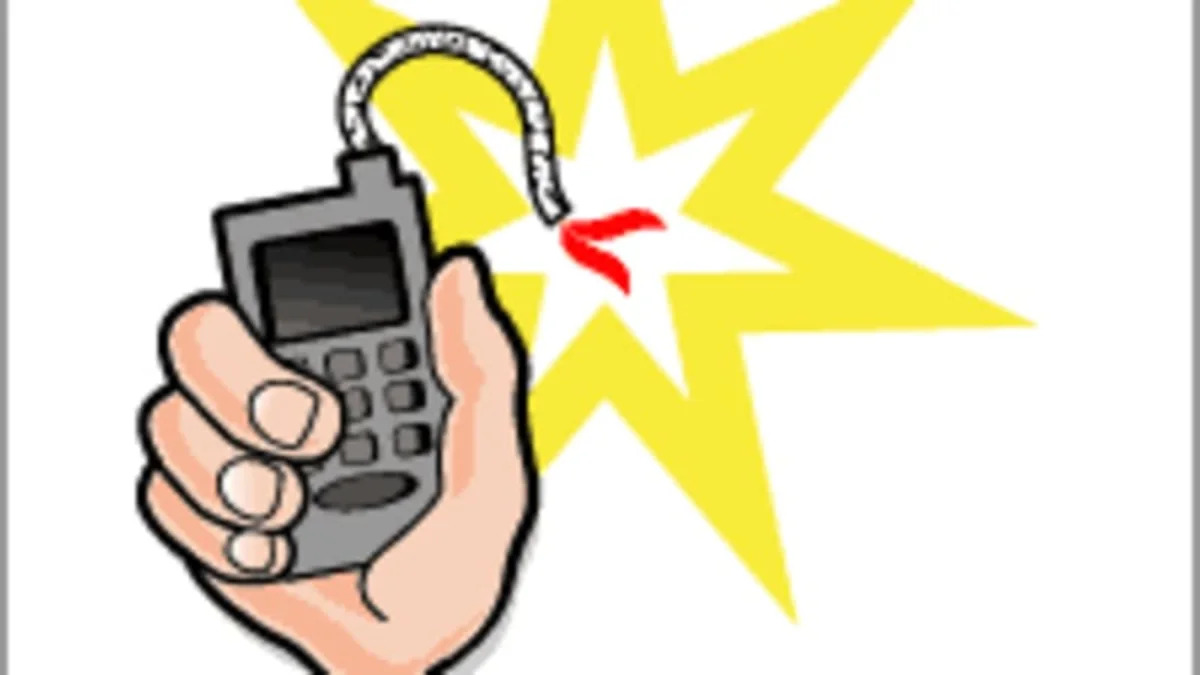“Hang up and drive” is becoming a familiar mantra as the dangers of talking and texting while driving become ever-more apparent. But pulling over and gabbing can have its hazards too, according to some experts -- if you do it next to the gas pumps.
| Illustration by Jay Moore, AOL |
According to the National Fire Protection Association, cell phones fall into the “electronic materials” classification, which means you should leave your phone in the car as you gas up. Static electricity is the villain, which can ignite vapors often seen near the nozzle of the pump as gas flows into your car. But there are also unseen vapors a few inches or more away, which are equally as flammable, say experts. Fire codes prohibit cell phone use near pumps and many stations post signs showing a cell phone with a slash through it.
But some agencies claim cell phones pose little or no pump danger.
“Cell phones continue to be cited as causing fires at the pump in e-mails circulating on the Internet,” says the Petroleum Equipment Institute. “So far, we have been unable to document any incidents that were sparked by a cellular telephone. In fact, many researchers have tried to ignite fuel vapors with a cell phone and failed.”
Though there have been many internet reports of cell phones causing fires and explosions at pumps, the only accredited account happened in 2004, when a 21-year-old student’s cell phone apparently caused a fire strong enough to activate the fire suppression system at a Shell station in New Paltz, New York as he was holding a conversation.
The student received minor burns, and at the time, New Paltz fire chief Patrick Koch attributed the blaze to static electricity coming from the motorist’s cell phone. But Koch retreated from that stance shortly after the incident, saying, "Upon further investigation of the accident scene and another discussion with the victim of the May 13 gasoline station fire in New Paltz, I have concluded the source of ignition was from some source other than the cell phone the motorist was carrying. Although we will probably never know for sure, the source of ignition was most likely static discharge from the motorist himself to the nozzle dispensing the gasoline."
The Federal Communications Commission (FCC), scoffs further at any potential danger, saying, “The wireless industry has done studies on the potential for wireless phones to create sparks that could possibly ignite flammable materialswhile it may be theoretically possible for a spark from a cell phone battery to ignite gas vapor under very precise conditions, there is no documented incident where the use of a wireless phone was found to cause a fire or explosion at a gas station.”
Still, say fire prevention authorities, it’s better to err on the side of caution. “If you must use any electronic device like a cell phone,” says Peg O'Brien, Public Affairs Associate of the NFPA, “follow the manufacturer’s instructions, most of which say you should leave your cell phone in the car while refueling.”
- Bizarre Car Accidents- Don't Put a Moving Car in Reverse
- Car Safety


Sign in to post
Please sign in to leave a comment.
Continue